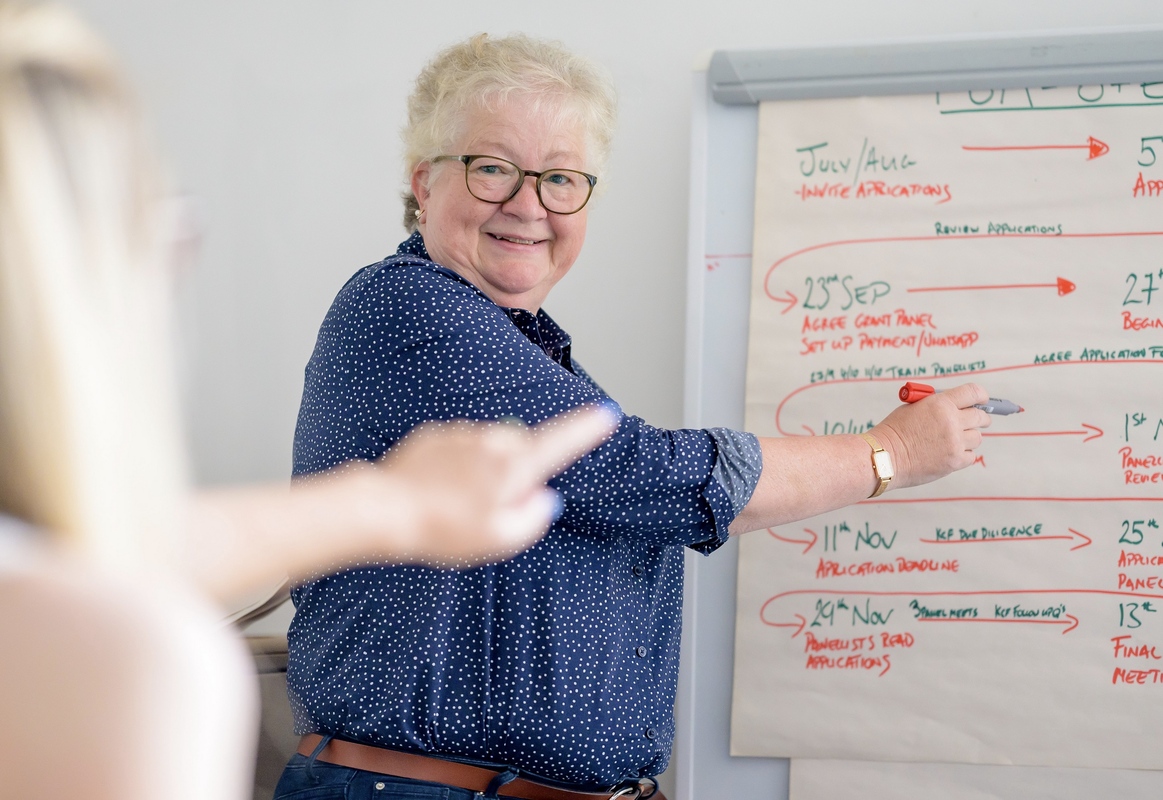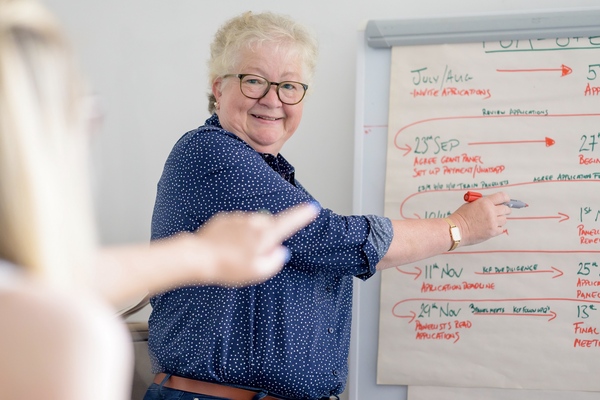
• One in 15 strokes locally affect people aged 44 and under
• May is Stroke Awareness Month, and new figures show 36% of strokes in Bristol affect people of working age
• In the next 10 years, the number of stroke survivors nationally is set to increase by 60%
• Bristol survey shows that only one third of stroke-affected people received support when considering returning to work
• Local stroke support charity offers to advise employers on how to make stroke prevention part of their wellbeing programmes and to help stroke-affected staff return to work
A Bristol-based charity that helps local people rebuild their lives following a stroke is warning employers of the potential costs of stroke to their business, and asking them to be part of their campaign to stem the rise in strokes locally among younger people.
Stroke is one of the four biggest “killer diseases”, along with cancer, heart disease and dementia. The increasing incidence of stroke means the annual cost of stroke to the nation is forecast to rise steeply in the years ahead - yet 9 out of 10 strokes are considered preventable through managing risk factors and making healthy lifestyle choices .
Increasingly, younger people are having strokes: Bristol is particularly affected, with approximately 36% of those having a stroke in the last 12 months being aged 64 and under. The cost to the country of more people having strokes will be considerable.
Recent figures from the Stroke Association show that in the next 10 years, the number of stroke survivors in the UK is set to increase by 60%, costing the Government £75 billion annually. Employers will also be affected by losing increasing numbers of valuable employees from their workforce.
Bristol After Stroke is an independent local charity which provides practical, social, emotional and psychological support to over 1,400 stroke-affected people every year as well as their carers. Their CEO Rebecca Sheehey says that taking action now could help stem the increased incidence of stroke locally in the coming years.
“We know from our own experience that half of those who have a stroke are left with a lasting disability and many will need support for years afterwards. As the incidence of stroke increases, that will have huge implications for our local economy ¬– not least our businesses, as around one third of those who have a stroke in the Bristol area are of working age.
“But businesses can play their part in stroke prevention: by supporting staff to understand the risks of stroke – helping to create a healthier, happier workforce.
“Employers are a key part of our community with a huge reach and could make a massive difference to preventing stroke in our region and rebuilding people’s lives after stroke.”
Many people will want to return to work following a stroke, but Bristol After Stroke’s own research shows that not all employers are currently playing their part in making this happen.
“A survey we recently ran showed that, while many felt that their employers were supportive, many still faced significant challenges - and only one third of stroke-affected people of working age said they had received support to help them return to work - quite possibly because employers are unsure how to do this,” says Rebecca.
“Returning to work can be daunting for the individual as they will have lost confidence and may still be struggling with some symptoms. “We can support with advice, resources, or talks to management, staff and groups.”
Ms Sheehy is urging local employers to make stroke awareness and prevention are an integral part of their “ESG” commitments, as well as find out how they can play a part in speeding employees’ recovery when they have had a stroke. “If employers would like support to raise awareness about stroke,” she says, “we’d be very happy to assist them.
“We would also welcome the opportunity for local businesses to partner with us in our work, either through sponsoring our activities or encouraging their staff to volunteer with us.”
Returning to work following a stroke
Case study
Steph was just 33 when she had her stroke in December 2022. As she says, at first she didn’t realise that she had even had a stroke and didn’t seek medical help for three days. But what happened when she looked to return to work was an even bigger shock…
“I woke up and found I had visual field loss… I couldn’t see anything on the left-hand side with both my eyes. I assumed it was some sort of migraine. When it didn’t get better, I went into hospital and was told that I had a relatively rare symptom but there was every chance of it going away. Four months later, the eye hospital told me that it was permanent.”
At the time, Steph was working for a UK-based financial software company, providing support for a sales team. “I was working from home, so I hoped that I could carry on as before - I had been there for three years. And while I needed to take some time out each week to attend a support group, and I occasionally struggled with fatigue, I hoped that the fact I was doing a good job would be enough for my employers to keep me on in that role.
“Sadly, however, they had different ideas and I found myself being ‘made redundant’ even though I was the only person in the company to go. I found it deeply upsetting but I really didn’t feel I could manage going through a tribunal and decided just to try and find another job.”
Pastures new…
In fact, another job “found” Steph. “I was contacted via LinkedIn and invited to apply for a similar role to the one I’d been doing. But this was an international company and with a much bigger sales team to support, working across several time zones. I even got a pay rise over my old job!”
So how did they feel about the fact that Steph had had a stroke? “I was totally transparent about the fact that I would be going to a fortnightly support group but would make up the time. And that I occasionally have times when I run out of energy – again I could make that time up.
“They made it clear they were more than happy to be flexible in order to employ me – just as good employers offer flexibility to those with caring responsibilities or young children. They’ve been incredibly supportive.”
Top tips…
So what is the best advice that Steph can offer to employees who have had a stroke, and to employers on how best to harness the talents of stroke-affected people?
“I would always advise employees to be totally up front about their condition and explain to the organisation what their ‘non-negotiables’ are in terms of flexibility and their needs, and back that by saying that in return they will get total commitment.
“From an employer’s viewpoint, look at the experience and skills that any person with a disability can bring to their organisation and listen to what that person needs to make them an effective member of the team… and try to understand why they might need that extra bit of flexibility or support.”
To get involved in our campaign, contact: [email protected]





